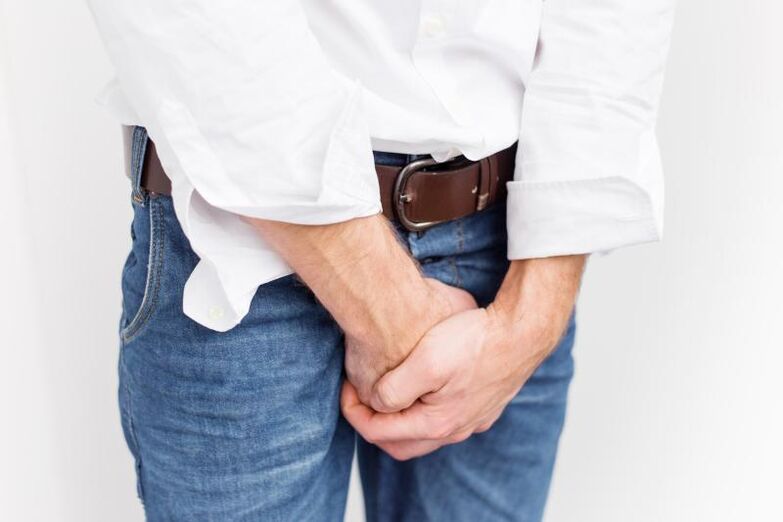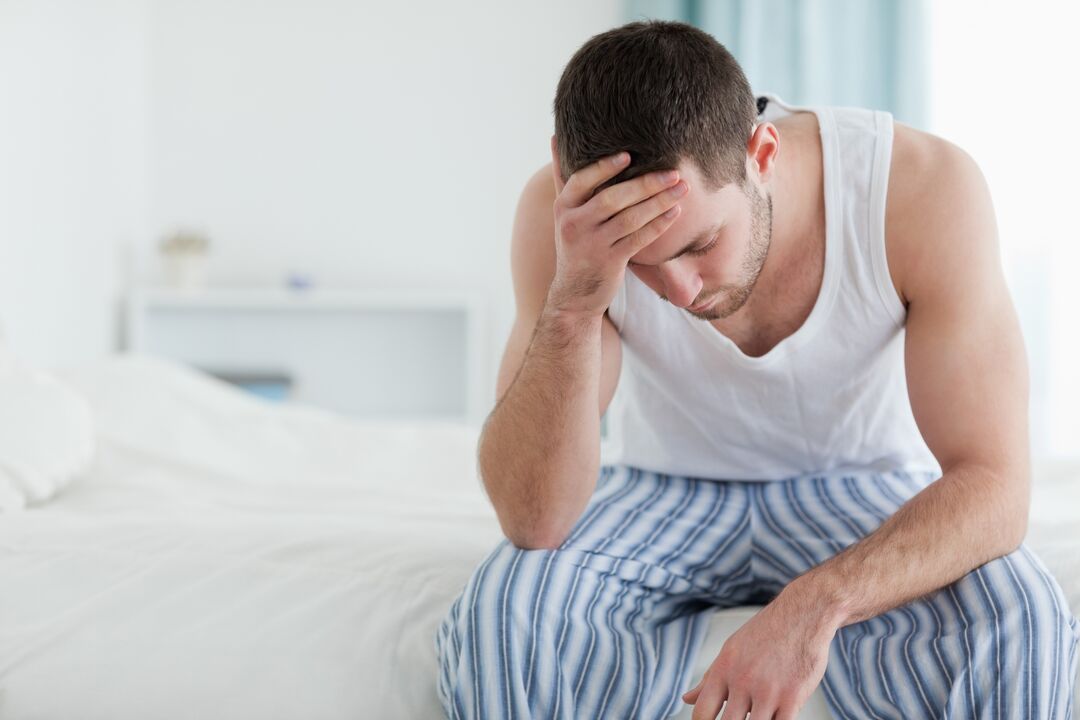
Prostatitis is a disease that can only appear in the male genitourinary system. Representatives of the strong half rarely rush to see a doctor and often go through a favorable phase of treatment, leaving the resolution of health problems at an appropriate time, which usually comes too late. It is very important to listen to your body, in time to identify the problems that threaten to stay imprisoned for a long time in a hospital bed.
Prostate health care becomes especially important in adulthood. But the disease is actively becoming younger. If previously diagnosed mainly in men over 40 years old, now the symptoms of prostatitis began to be detected at the age of 20-25 years. Almost every second male suffers.
The role of the prostate in a man's body
This organ is often called the "second heart" because of the many important functions that the glands perform. In it is created a secretion, which dilutes the composition of sperm, the gland is part of the sphincter that regulates the urinary process, produces and converts male hormones and also contributes to the sensation of orgasm.
Signs of prostatitis in men and its symptoms
Prostatitis is an inflammation accompanied by swelling of the tissues of the prostate gland (prostate), it will inevitably appear, even if the pathology itself is in the adjacent organs, vas deferens, urethra and bladder. The main circuits of the circulatory and lymphatic system pass through the groin area, this exacerbates congestion. Numerous nerve fibers flowing in this area of the body contribute to painful seizures.
Symptoms of prostatitis are caused by the type of disease, which is characterized by the cause of its occurrence. The following types have been identified:
- bacterial;
- bacterial or non-infectious;
- spicy;
- chronic.
Although for each item you can distinguish its own signs of prostatitis, the symptoms have similar manifestations:
- There is discomfort and pain in the suprapubic region, in the groin area and in the scrotum.
- Frequent desire to go to the toilet with cuts and pain, there is a feeling of incomplete emptying.
- Libido falls.
- Body temperature rises, chills cover.
- Depressive mood, apathy, depressive state of mind.
At least two of the symptoms listed are already an important reason to visit a specialist urologist or andrologist. An insidious disease can remain without manifestations for a long time, and the first signs of prostatitis in men will be found years after the onset of the provoking factor.
It is worth being careful about pain in the small pelvis, sacrum and lower back. Pain syndrome increases with abstinence or, conversely, with very frequent sexual contact. Glandular secretion has natural bactericidal barriers, therefore, only fluid stagnation can lead to the onset of the inflammatory process when the bactericidal effect disappears.
Signs of prostatitis for different types of diseases
Based on the clinical picture of the disease, many forms and types of prostatitis are identified. Each of them differs in the signs and nature of the course of the disease. How prostatitis appears is due to the reasons for its occurrence.
Urologists identify two main causes of prostatitis:
- an infection that can enter the pelvic organs in a variety of ways;
- fluid stasis within the gland.
What factors shape these phenomena:
- infection of the genitourinary system with various microorganisms and fungi;
- reduced immunity, impeding protection against infections;
- hypothermia, for example from staying on a cold surface for a long time;
- a sedentary lifestyle provokes stagnation in the body;
- alcohol dependence and smoking negatively affect blood circulation, vessels in the pelvis are narrowed;
- the correct production of hormones is disrupted, which contributes to the appearance of problems in the genital area or impotence;
Let's analyze the individual forms and signs of prostatitis:
- Acute prostatitis- inflammation of the prostate tissue. It is associated with edema and disruption of natural processes. The swollen gland enlarges and compresses the duct of the excretory system. There are problems with the administration of natural needs, there are cramps, burning sensationsand pain when urinating, the feeling of an incomplete emptied urea. bubble. Very advanced cases will be accompanied by swelling of the scrotum, this causes painful discomfort on palpation. The production of secretion that forms the composition of sperm is damaged, this affects its quality maturation. Even the intimate sphere of life suffers. Physiological disturbances negatively affect psychological comfort. With foci of purulent prostatitis in men, the symptoms will be as follows: yellow viscous discharge from the penis, high fever, acute urinary retention. Most often, the cause of the development of the disease in such a severe form is an infection brought to the body. Pathogenic microorganisms: viruses (papilloma, influenza), bacteria (chlamydia, trichomonas) and fungi, for example, of the Candida family. The first signs of prostatitis in men in their acute form will be similar to the first signals of any infectious disease: chills, weakness, muscle aches, fever up to 39 ° C. When a cutting pain appears in the pelvic area, a man concludes that it is not merely a cold and it will not be possible to "stretch". Then join the problems with going to the toilet. Treatment of an acute infectious form can only be properly performed by a qualified physician. We need a clear diagnosis of the disease and prompt relief from prostate symptoms. In most cases, antibiotic drugs are prescribed, the duration of which depends on the effectiveness of their action. Medical treatment will be accompanied by physiotherapy procedures that promote accelerated tissue recovery and prostate massage.
- Chronic prostatitis- The most common pathology of the genitourinary system in men. According to medical statistics, approximately 80% of all prostate detection cases are precisely the chronic form of the disease. The most common development factor is the effect on the body of pathogenic microorganisms, for example, Trichomonas. Lack of regular physical activity, bad habits, trauma often provoke a chronic course of prostatitis. Often, untreated acute prostatitis becomes chronic.
The most common signs of chronic prostatitis are:
- discomfort and pain in the suprapubic area, pain in the groin area;
- frequent night awakenings to go to the toilet;
- Difficulty urinating
- painful sensations during ejaculation;
Chronic signs of prostatitis in men and its symptoms cause concern for many men, but most tolerate them and do not go to specialists, recklessly thinking that the disease can go away on its own. You can wait for the opposite effect. In the case of this insidious disease, a man may progress to the form of more dangerous diseases, or chronic prostatitis will return to its acute form.
The saddest result of reconciliation will be infertility or impotence. Treatment of the chronic form of prostatitis is carried out with the direct participation of the doctor. He prescribes antibiotics and anti-inflammatory drugs. Medications are used to relax the urethral muscles, making it easier for the patient to go to the toilet.

Bacterial / non-infectious prostatitis - factors such as:
- has suffered injuries;
- sedentary lifestyle;
- constant stress;
- low level of immunity;
- internal infections of the intestines or small pelvis.
Signs of prostatitis will be discomfort or pain in the pelvic area, difficulty going to the toilet, disorders in the intimate sphere, the patient is constantly tired, weak, mentally depressed. Self-medication is unacceptable, as it requires an integrated approach of an attentive specialist. It is very easy to harm your body by prescribing medication yourself.
Wrong choice of antibiotic will have a detrimental effect on intestinal microflora. There will be a decrease in immunity, which will lead to a deterioration of the processes occurring within the prostate gland.
There are medications that only relieve the symptoms. If medications do not help for objective reasons, the specialist should replace them and introduce hormonal drugs into therapy.
Preventive measures
Prophylaxis to prevent prostatitis will be:
- personal hygiene;
- a regular rhythm of sexual activity;
- playing sports;
- regular heating in the office workplace;
- a complete diet;
- rejection of bad habits;
- timely treatment of any genitourinary tract infection;
- continuous increase of immunity.
The signs of prostatitis in men and its symptoms are very similar to a range of other dangerous diseases like cancer, abscess, cystitis. Negative consequences can leave a man sterile. Timely referral to an experienced specialist will help avoid health problems. It is very important to check your body regularly: once a year will be enough, especially after forty years.



















